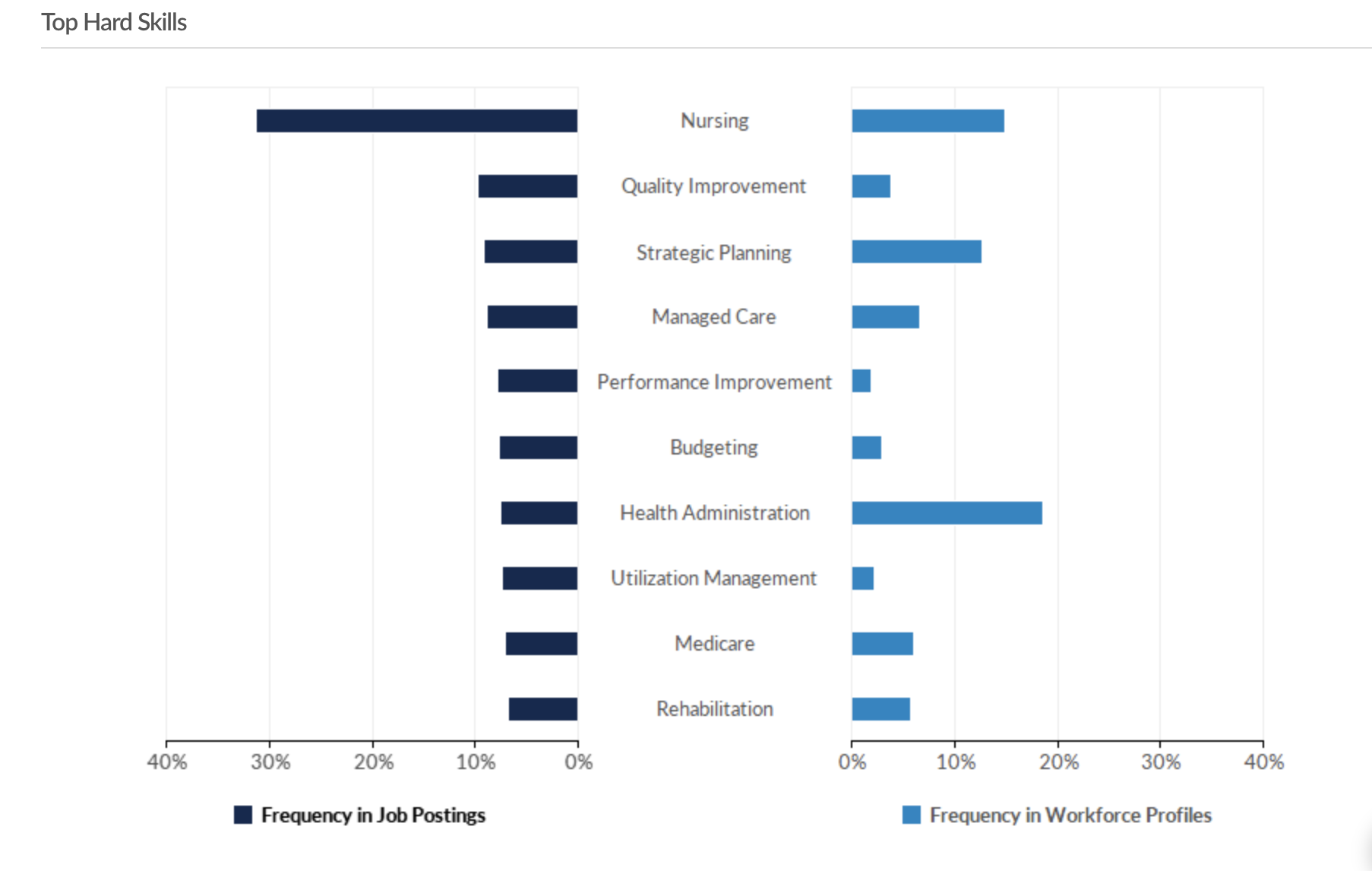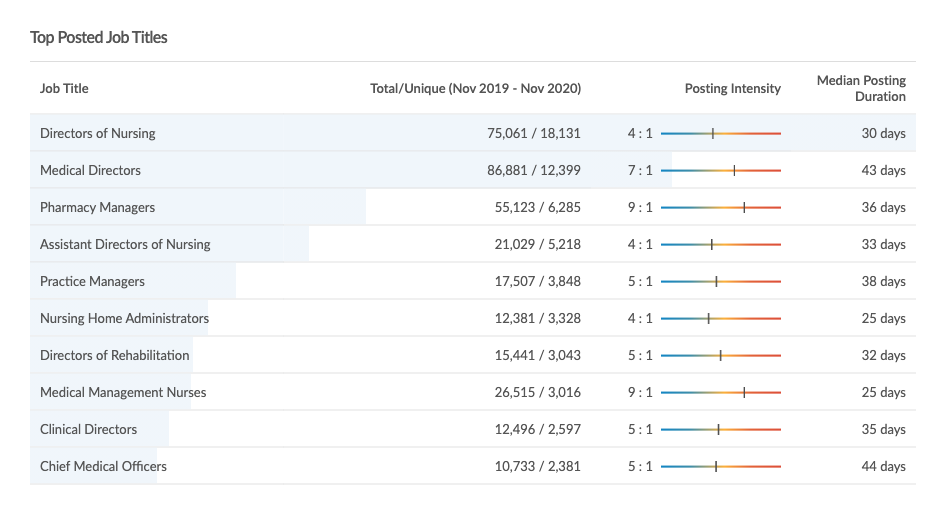
There isn’t a “one-size-fits-all” job description in healthcare administration. As technologies advance and hospital systems and healthcare organizations grow in size and complexity, the healthcare administrator has become an essential role with a wide range of duties. Careers in healthcare administration typically involve management-level positions responsible for leading diverse functions within a healthcare organization.
Specific skills vary by position, but the top skills employers seek include strategic planning, quality and performance improvement, healthcare financial management, health administration, utilization management, Medicare knowledge, managed care, and rehabilitation. Employers also look for candidates who demonstrate skills in leadership, operations, communications, public speaking, decision making, problem solving, and knowledge of federal and state healthcare law and policy.
Leadership positions, such as health services director, clinical manager, medical director, program manager, and vice president and chief positions, typically require a master’s degree in healthcare management or administration. A healthcare administration degree program that matches learning outcomes to employer expectations will give you an advantage as a candidate in this rapidly expanding field.
University of Wisconsin offers an online Master of Science in Healthcare Administration to patient care, healthcare administration, health information management, and other administrative professionals seeking a leadership role in healthcare administration. An advisory board, comprised of healthcare experts with experience in practice areas such as talent development, advocacy, veterans affairs, rural health, and health law and policy, ensures the curriculum stays relevant to emerging trends in healthcare.
Healthcare Administrator—the Case for Communication
Interviewed CEOs and representatives from hiring healthcare organizations mentioned that soft skills—commonly referred to as emotional/social intelligence—lack the most among potential candidates yet are the most important factor for success.
Healthcare administration roles often involve conflict management and strategic collaboration across multiple healthcare disciplines, including physicians and physicians groups, nursing, administration, and other ancillary departments from a variety of allied specialties. Healthcare administrators must regularly use effective communication and other soft skills including:
- Creative thinking
- Collaborative work ethic
- Decision making
- Time management
- Flexibility
- Problem solving
- Conflict resolution
Unlike hard skills, which are job specific, soft skills characterize personal attributes and determine how an individual interacts in his or her relationships with others. A professional with strong soft skills excels in communication, creative thinking, conflict resolution, and other strengths that facilitate understanding and working with people. Soft skills are valued in the healthcare workplace because they allow for better success in team settings and create stronger relationships, which can positively impact patient care and improve community partnerships.
With courses such as HCA 710 Communications and Marketing in Healthcare and HCA 730 Human Capital Management, the Master of Science in Healthcare Administration offers students an opportunity to develop communication strategies and a people-centered approach that is critical in healthcare leadership.
Get Program Guide
Learn more about our 100% online degree and certificate programs.
What does a Healthcare Administration Professional do?
A healthcare administrator may lead a complex healthcare system with a large workforce or manage a small, private practice. Regardless of the size of the organization, an administrator will typically be tasked with:
- Strategic planning
- Financial management
- Human resource policy and personnel development
- Patient care initiatives
- Workplace efficiency improvements
- Public relations and communications
- Staff recruitment and retention efforts
A qualification that appears in nearly every healthcare administrator job description is critical thinking and leadership in strategic planning. Healthcare organizations are structured in operating levels, so a healthcare administration professional, such as a health services director, needs to develop strategic plans to maximize success on every level of operation. The final course in the Master of Science in Healthcare Administration requires students to complete a capstone project that exposes them to real-life work experiences paired with applied coursework. This experience can instill confidence for successful strategic planning as a healthcare administrator.
Healthcare Administration Job Titles
While job titles vary, most healthcare administration positions share similar responsibilities. With a master’s degree in healthcare administration, you’re qualified for positions, such as health services/medical director, clinical manager/director, health program/practice manager, chief medical officer, and healthcare administrator.

RELATED: Healthcare Administration Salaries
Your Next Career Move—Healthcare Administration
In the online Master of Science in Healthcare Administration you’ll learn strategic management skills through a curriculum that focuses on the specialized needs of healthcare. As a graduate, you’ll be qualified for leadership roles across a variety of healthcare settings, urban to rural. Enrollment advisers can help with all of your program questions. Call 1-877-895-3276 or email learn@uwex.edu.










